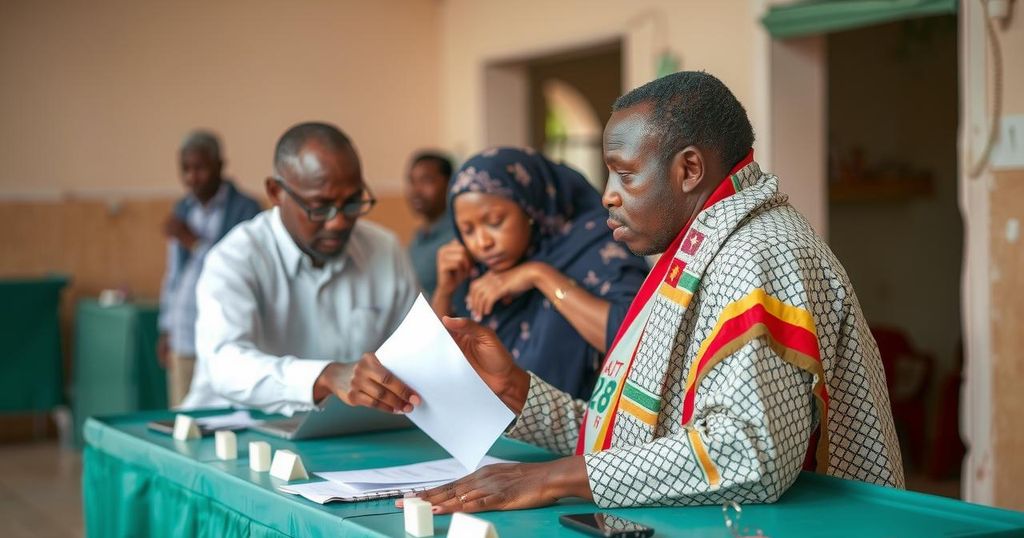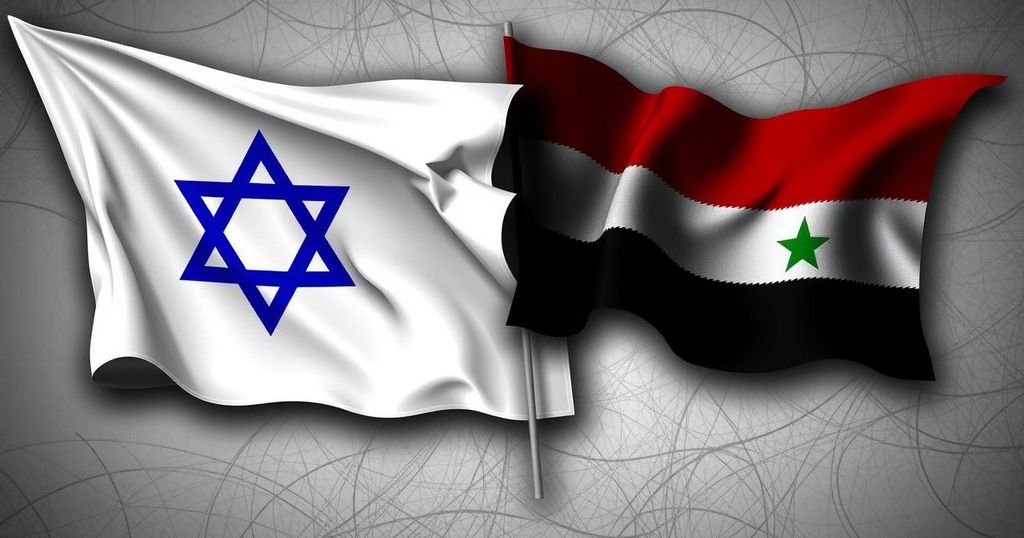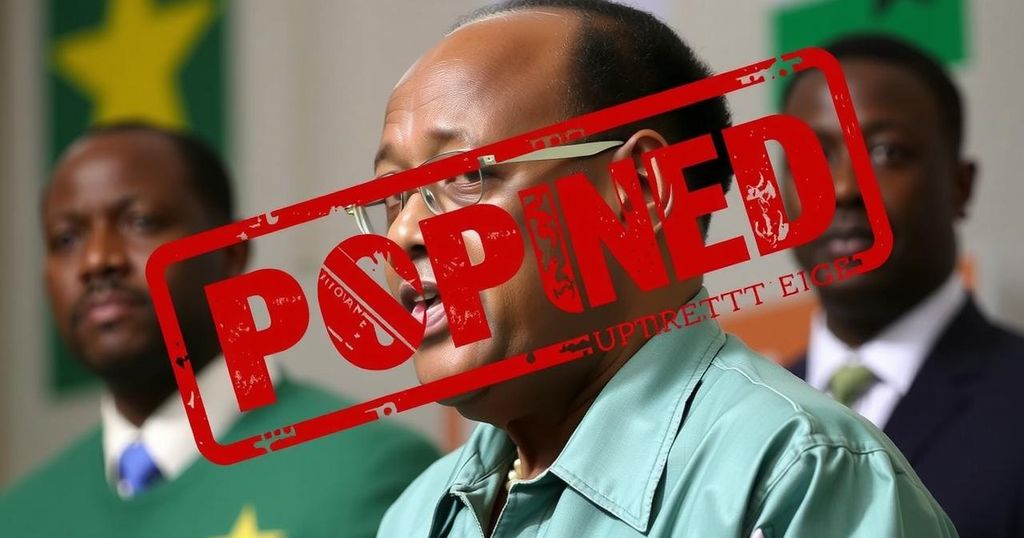Chad’s Elections Amidst Opposition Boycott and Skepticism
Voting commenced in Chad’s general elections, overshadowed by opposition calls for a boycott and claims of illegitimacy. President Deby framed the elections as essential for democratic transition, yet many citizens are indifferent to the outcome due to persistent governmental issues. Initial turnout from military and nomadic populations was noted, but broader skepticism regarding electoral integrity raises significant concerns about the ruling party’s influence.
The general elections in Chad commenced amidst a backdrop of controversy, as opposition parties called for a boycott, denouncing the process as a mere facade to consolidate the ruling party’s hold on power. President Mahamat Idriss Deby Itno has characterized the elections as pivotal for a transition to democratic governance. Despite these proclamations, many citizens, disillusioned by prevailing issues such as high living costs and governmental corruption, have expressed indifference toward the elections. Although initial turnout estimates indicated notable participation from military and nomadic populations, the broader electorate’s apathy highlights the disconnect between the government and its citizens.
Polling is taking place on two separate days due to logistical arrangements for military personnel and herding communities, with most voting occurring on Sunday. The electoral process unfolds under the shadow of ongoing violence from rebel groups like Boko Haram, coupled with political tensions following discontinued military accords with France and regional instability concerning Sudan. As citizens cast their votes, the integrity of the election is called into question, as analysts note the dominance of the ruling Patriotic Salvation Movement (MPS) within electoral management, further complicating perceptions of legitimacy.
In his analysis, Mamadou Bodian articulated concerns on the electoral process’s credibility, asserting that the ruling party’s influence raises significant doubts about the independence of the voting system. He remarked that although the elections signify an important milestone in Chad’s political landscape, they are overshadowed by the ruling party’s overwhelming advantage. Deby was previously elected under contentious circumstances, again casting uncertainty over the electoral system’s integrity.
Thus, while the elections may represent a transition point, the ruling party’s entrenchment and the opposition’s call for boycott indicate a challenging path ahead for Chad in its pursuit of democratic governance and public trust.
Chad’s political environment is fraught with challenges, including persistent allegations of governmental corruption, nepotism, and failures in addressing core societal issues. President Mahamat Idriss Deby Itno, who ascended to power following the death of his father in 2021, has positioned the ongoing elections as crucial to transitioning the nation towards democracy. However, opposition parties have responded with calls for a boycott, questioning the legitimacy of the electoral process and suggesting that the elections are designed principally to benefit the ruling party, the Patriotic Salvation Movement. This situation is further complicated by external pressures such as military conflicts and regional political dynamics, particularly in light of recent tensions with neighboring Sudan and the historical impact of France in the region.
In summary, the elections in Chad reflect a convoluted political backdrop where opposition parties reject the legitimacy of a voting process viewed as favoring the incumbent ruling party. While logistical arrangements have allowed for initial participation among military personnel, broader citizen apathy and skepticism prevail, emphasizing deep-seated issues of governance and trust. Analysts express serious reservations regarding electoral integrity, highlighting that while these elections may mark a transitional milestone, they also expose the fragility of Chad’s democratic aspirations and the considerable influence of the ruling party. The outcome may significantly impact Chad’s political landscape moving forward.
Original Source: www.aljazeera.com




Post Comment